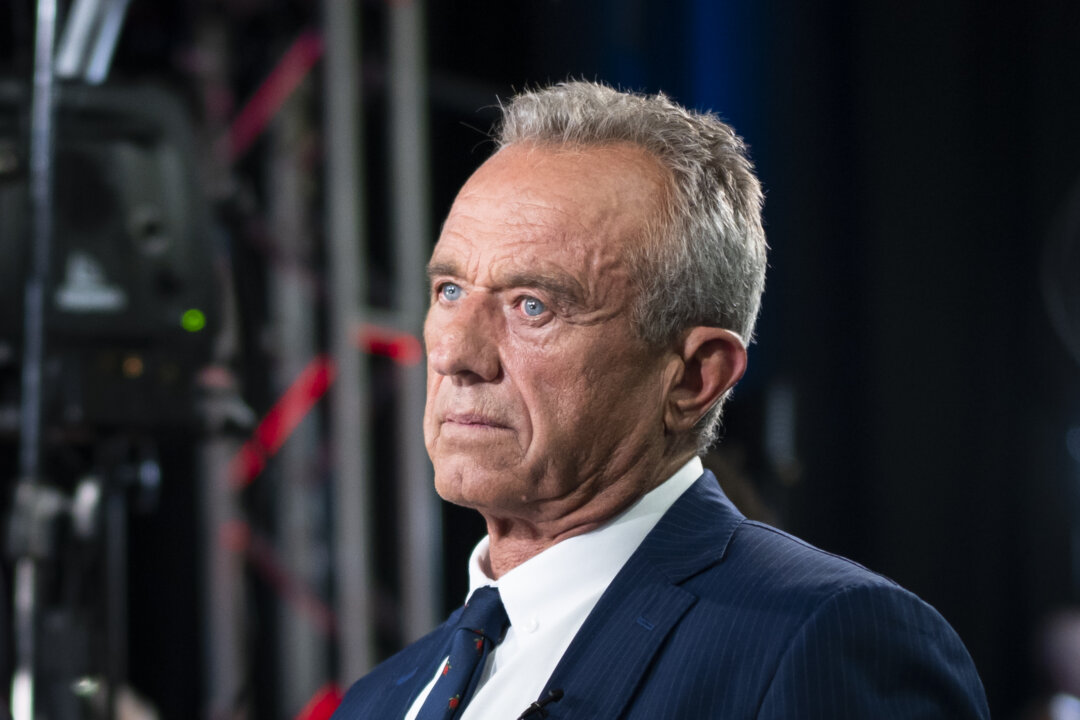Robert F. Kennedy Jr. withdrew from the presidential race but will still be an option for Michigan voters.
A federal appeals court on Oct. 16 denied a request from Robert F. Kennedy Jr. to reconsider a ruling that upheld a federal judge’s decision to keep his name on the ballot in Michigan.
Kennedy, an independent presidential candidate, withdrew from the race earlier this year and subsequently requested to have his name removed from the ballot. Michigan Secretary of State Jocelyn Benson said that the request came too close to the election and that state law prevents minor party candidates from withdrawing after being nominated at state conventions.
Michigan courts, culminating in the Michigan Supreme Court, backed Benson. After Kennedy took the case to federal court, a U.S. district judge also ruled in favor of Benson, finding that Kennedy’s interest in having his name removed was “outweighed by the state’s interest in maintaining the integrity of the ballot.”
A three-judge panel of the U.S. Court of Appeals for the Sixth Circuit upheld that ruling in a split decision, with the majority saying Kennedy was unlikely to succeed. The dissenting judge said keeping Kennedy’s name on the ballot was likely unconstitutional.
Kennedy had asked the full Sixth Circuit to reconsider the case, resulting in the Oct. 16 order. The panel that upheld the ruling reviewed Kennedy’s petition for rehearing en banc and concluded “that the issues raised in the petition were fully considered upon the original submission and decision,” the court said. The petition was then sent to the full court, and a majority of judges voted against rehearing the case.
Kennedy’s campaign did not respond to a request for comment.
U.S. Circuit Judge Eric L. Clay said in a concurring opinion that Kennedy’s claims are barred by the legal principle that if a person’s claims are fully adjudicated in one court, they cannot be pursued in another. He also said that Kennedy’s First Amendment rights were not being violated by the fact that his name was kept on the ballot.
U.S. Circuit Judge Richard Allen Griffin said in another concurring opinion that “at this juncture, without an effective remedy, court intervention would only further undue chaos in the ongoing election.”
U.S. Circuit Judge Amul R. Thapar said in a dissent that including Kennedy’s name on the ballot even though he requested to be removed before the ballots were printed means Benson “likely compelled Kennedy’s speech,” in violation of the First Amendment.
“Just as government-issued license plates may include private speech, so too with ballots. The government can’t force individuals to carry a message that they don’t agree with, even if that message is as benign as a well-known state motto,” Thapar said, pointing to a previous court ruling. “Here, the Secretary isn’t just mandating that a state motto appear on candidates’ electioneering materials; she is forcing Kennedy to convey the (false) message that Kennedy is running for president. In so doing, the Secretary is requiring Kennedy to continue endorsing a message he has disavowed.”
Benson’s office did not respond to a request for comment by publication time.

